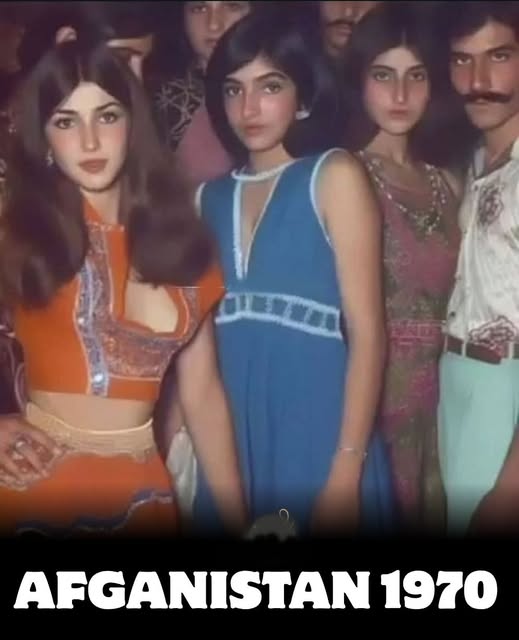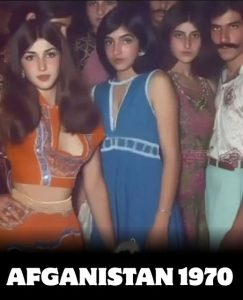Afghanistan: A Glimpse of the 70s – From Prosperity to Change

Afghanistan, once a vibrant and thriving land, holds within its history a time when Kabul was often referred to as the “Paris of Asia.” In the 1970s, the city gleamed with life, its streets filled with bustling energy, and its women flourishing in universities and offices. The atmosphere was one of liberty and promise, where opportunities were abundant, and the air was thick with potential. People, regardless of their background, walked side by side with a sense of freedom that seemed endless.

In those years, Kabul was not just a capital; it was a symbol of hope and progress, a place where diversity and modernity flourished. Universities were full of bright minds, and women were breaking boundaries, excelling in fields once closed to them. The sound of laughter, the hum of conversation, and the joy of the people were etched in the city’s air like a never-ending song. The 70s were a time of promise, of awakening, and of social revolution.

However, time has a way of transforming landscapes—both physical and ideological. Fast forward over fifty years, and the scene is starkly different. The same streets that once thrummed with the pulse of progress now echo with the haunting silence of a lost era. The women who once walked freely through the gates of universities now find their rights severely limited. The vibrant marketplace that was once alive with commerce and conversation now feels muted, weighed down by political unrest and conflict.
This transformation of a nation—its soul and identity—raises important questions. How do a country’s core values and social structures shift over time? What happens when leadership and governance begin to veer away from their roots, and new, often oppressive, ideologies take hold? Afghanistan’s journey from a blossoming society to a land steeped in turmoil speaks volumes about the fragility of freedom and the endurance of cultural transformation.
As we reflect on the past, let us honor the stories of those who lived through the golden years of Kabul, those who flourished in an era of prosperity and hope. Let us not forget the sacrifices and the dreams that were once woven into the fabric of Afghan society. And as we look toward the future, let us remember the importance of fostering peace, ensuring rights for all citizens, and embracing the values that once made Afghanistan a beacon of progress in Asia.
In remembering, we honor the past—and in honoring the past, we find the wisdom to shape a brighter tomorrow.
![]()











